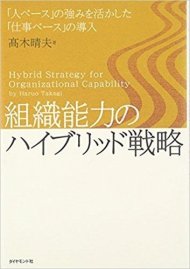A Professional Manager Has Only One Job
"Why can a handful of managers move their subordinates and teams so easily to achieve a given goal?"
"Why do you have a manager who can judge your surroundings, make the right choices, and continue to produce results as a team?"
"How can I be a good manager?"
At a business school, I teach organizational management, which is the knowledge needed use to move a group of people, and I often get questions like this from students and business people in companies.
Many of those who ask such questions are thinking, "I'm not a good manager" or "I don't have management talent." Many of them seem to think that good managers have extraordinary human appeal or overwhelming practical expertise. But that's overkill. Sure, those abilities can help a lot, but they're not essential to being a good manager. A good manager practices the only thing that is most important to management. However, there are many people in the world who are called managers, but many of them are not able to practice that one most important thing.
In order for readers to succeed as managers and develop their own careers, please practice the manager's most important work– distribution of management, as introduced in this book.
This book is a compilation of lectures delivered by a popular professor of Keio Business School who has appeared four times in NHK "Incandescent Class Japan." He also gave a lecture and question and answer session regarding "Incandescent Management Special Lecture" to Keio Business School students seven times in about three months.

 Brochure
Brochure
 Info Session
Info Session
 Application
Application
 Alumni Voices
Alumni Voices






